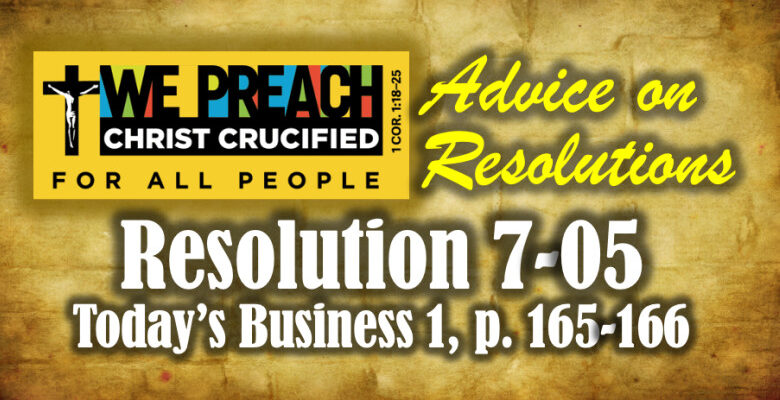What should concern delegates?
This resolution creates a special class of service in the LCMS due to the rule for appointment and removal (line 17). Already, to become a member of a Board of Regents, one must be either elected by a Synodical or District Convention or appointed by the board itself. This new bylaw places on Boards of Regents a restriction on appointment that is unique: only elected members may vote to add members to the board by appointment who is not replacing someone elected at the Synodical or District convention. Appointed members may not vote to appoint new members to a Board of Regents. That’s not the case for Synod Board of Directors or other agencies of Synod. Appointed members in all other cases may vote on new appointments.
The other half of the resolution (lines 39-45) is more troubling. This involves the removal of a member of a Board of Regents for allegations (not proof) of breach of fiduciary responsibility, advocacy of false doctrine, or failure to uphold the doctrinal position of the Synod. If a BOR fails to remove a member, the President of Synod is given a way to do so without appeal. In other words, with a “notice alleging cause” – with or without due process – may be used to remove an elected or appointed member of a BOR.
If approved, the first Resolved (lines 46-48) of this proposed bylaw will be applied immediately. That means passing this resolution would result in the Synod President and Board of Directors to begin action to remove all elected and appointed members of the Concordia Texas Board of Regents.
What can be done about it?
This resolution should be amended, tabled, or defeated. Many questions need to be answered before delegates can in good conscience add these bylaw amendments.
Ask why this resolution in particular notes that it will be “applied immediately” to boards of regents across the CUS system.
Ask what “failure to take action within 90 days after receiving a written notice alleging cause for removal” means. What if the allegations are unfounded? What if the Synod Board of Directors believes a fiduciary responsibility has been breached but the Board of Regents investigation concludes it has not?
The President’s Report and Resolution 7-03 together make many allegations against the BOR of CTX regarding their fiduciary responsibility. Is this resolution in preparation to act against CTX BOR members? If so, is that in keeping with the spirit of a “call to repentance”? Do you believe this will help return CTX to the CUS?
What ascending liability exposure does the Synod have if it can remove a university President and members of the BOR at will without due process? Does that not prove the HotChalk lawsuit’s allegations of Synod, Inc., controlling the Concordias? Does this put Synod assets in danger?

